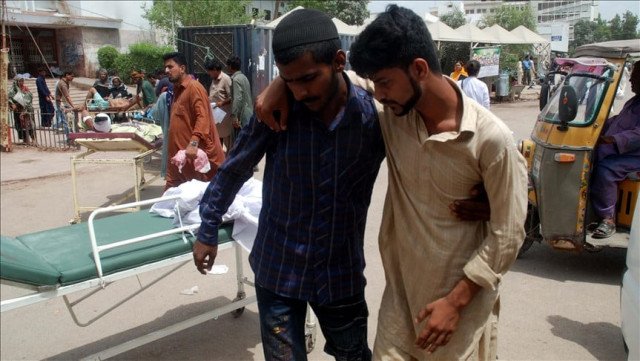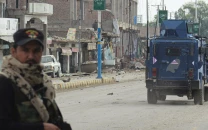Three children die as scorching heatwave bakes Pakistan
Temperatures soar to 51 degrees Celsius in Jacobabad

A searing heatwave continued to bake most parts of Pakistan as temperatures soared up to 51 degrees Celsius (about 124 degrees Fahrenheit) on Saturday, meteorological officials and local media reported.
The southern Sindh and northeastern Punjab provinces are predominantly bearing the brunt of the scorching heatwave, which, according to the Pakistan Meteorological Department (PMD), is likely to persist for at least another week.
Jacobabad recorded 51 degrees Celsius -- the highest ever this year -- followed by Nawabshah, where the mercury touched 50.5 degrees.
Read more: Heatwave to persist till May’s end
At least three children died because of the severe heat in the Kaccho region of Sindh on Saturday, local media reported, while temperatures in Larkana were recorded as 50 degrees.
The rise in temperatures has also caused water and energy crises in several cities, apart from posing a threat to crops across the nation.
The meteorological department, in a statement, cautioned that the prevailing hot and dry weather could cause stress on water reservoirs, crops, vegetables, and orchards, advising farmers to manage their crops accordingly.
The South Asian nuclear country, which is among the 10 nations badly affected by climate change, has been facing severe heat since 2015 with lengthening summers and diminishing winters.
Minister for Climate Change Sherry Rehman last week warned that the country could face severe water shortages by 2025 due to climate change.
In a series of tweets, she asked the public, especially elderly people, to stay indoors to avoid the risk of heatstroke and dehydration.
"Prevalent hot and dry weather has already caused water stress on reservoirs crops, vegetables, orchards, and may cause an increase in the demand for energy and water," Rehman said.
"Predictions for increased base flow in the rivers during the next week may help. Until then, people are advised to avoid unnecessary exposure to direct sunlight and take precautionary measures. Furthermore, water should be used sparingly. Pets and livestock need protection too," she added.



















COMMENTS
Comments are moderated and generally will be posted if they are on-topic and not abusive.
For more information, please see our Comments FAQ